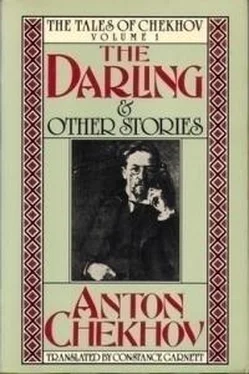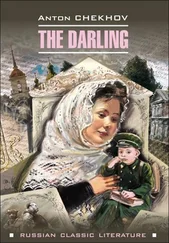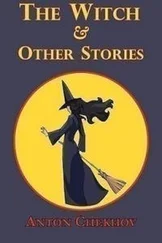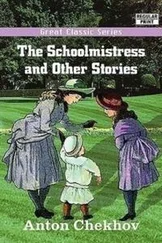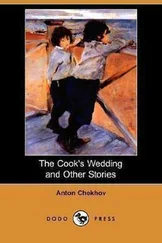Антон Чехов - The Darling
Здесь есть возможность читать онлайн «Антон Чехов - The Darling» — ознакомительный отрывок электронной книги совершенно бесплатно, а после прочтения отрывка купить полную версию. В некоторых случаях можно слушать аудио, скачать через торрент в формате fb2 и присутствует краткое содержание. Год выпуска: 2014, Издательство: epubBooks Classics, Жанр: Классическая проза, на английском языке. Описание произведения, (предисловие) а так же отзывы посетителей доступны на портале библиотеки ЛибКат.
- Название:The Darling
- Автор:
- Издательство:epubBooks Classics
- Жанр:
- Год:2014
- ISBN:нет данных
- Рейтинг книги:5 / 5. Голосов: 1
-
Избранное:Добавить в избранное
- Отзывы:
-
Ваша оценка:
- 100
- 1
- 2
- 3
- 4
- 5
The Darling: краткое содержание, описание и аннотация
Предлагаем к чтению аннотацию, описание, краткое содержание или предисловие (зависит от того, что написал сам автор книги «The Darling»). Если вы не нашли необходимую информацию о книге — напишите в комментариях, мы постараемся отыскать её.
The Darling — читать онлайн ознакомительный отрывок
Ниже представлен текст книги, разбитый по страницам. Система сохранения места последней прочитанной страницы, позволяет с удобством читать онлайн бесплатно книгу «The Darling», без необходимости каждый раз заново искать на чём Вы остановились. Поставьте закладку, и сможете в любой момент перейти на страницу, на которой закончили чтение.
Интервал:
Закладка:
"Of course. We are higher beings, and if we were really to recognise the whole force of human genius and lived only for higher ends, we should in the end become like gods. But that will never be—mankind will degenerate till no traces of genius remain."
When the gates were out of sight, Genya stopped and shook hands with me.
"Good–night," she said, shivering; she had nothing but her blouse over her shoulders and was shrinking with cold. "Come to–morrow."
I felt wretched at the thought of being left alone, irritated and dissatisfied with myself and other people; and I, too, tried not to look at the falling stars. "Stay another minute," I said to her, "I entreat you."
I loved Genya. I must have loved her because she met me when I came and saw me off when I went away; because she looked at me tenderly and enthusiastically. How touchingly beautiful were her pale face, slender neck, slender arms, her weakness, her idleness, her reading. And intelligence? I suspected in her intelligence above the average. I was fascinated by the breadth of her views, perhaps because they were different from those of the stern, handsome Lida, who disliked me. Genya liked me, because I was an artist. I had conquered her heart by my talent, and had a passionate desire to paint for her sake alone; and I dreamed of her as of my little queen who with me would possess those trees, those fields, the mists, the dawn, the exquisite and beautiful scenery in the midst of which I had felt myself hopelessly solitary and useless.
"Stay another minute," I begged her. "I beseech you."
I took off my overcoat and put it over her chilly shoulders; afraid of looking ugly and absurd in a man's overcoat, she laughed, threw it off, and at that instant I put my arms round her and covered her face, shoulders, and hands with kisses.
"Till to–morrow," she whispered, and softly, as though afraid of breaking upon the silence of the night, she embraced me. "We have no secrets from one another. I must tell my mother and my sister at once…. It's so dreadful! Mother is all right; mother likes you—but Lida!"
She ran to the gates.
"Good–bye!" she called.
And then for two minutes I heard her running. I did not want to go home, and I had nothing to go for. I stood still for a little time hesitating, and made my way slowly back, to look once more at the house in which she lived, the sweet, simple old house, which seemed to be watching me from the windows of its upper storey, and understanding all about it. I walked by the terrace, sat on the seat by the tennis ground, in the dark under the old elm–tree, and looked from there at the house. In the windows of the top storey where Misuce slept there appeared a bright light, which changed to a soft green—they had covered the lamp with the shade. Shadows began to move…. I was full of tenderness, peace, and satisfaction with myself—satisfaction at having been able to be carried away by my feelings and having fallen in love, and at the same time I felt uncomfortable at the thought that only a few steps away from me, in one of the rooms of that house there was Lida, who disliked and perhaps hated me. I went on sitting there wondering whether Genya would come out; I listened and fancied I heard voices talking upstairs.
About an hour passed. The green light went out, and the shadows were no longer visible. The moon was standing high above the house, and lighting up the sleeping garden and the paths; the dahlias and the roses in front of the house could be seen distinctly, and looked all the same colour. It began to grow very cold. I went out of the garden, picked up my coat on the road, and slowly sauntered home.
When next day after dinner I went to the Voltchaninovs, the glass door into the garden was wide open. I sat down on the terrace, expecting Genya every minute, to appear from behind the flower–beds on the lawn, or from one of the avenues, or that I should hear her voice from the house. Then I walked into the drawing–room, the dining–room. There was not a soul to be seen. From the dining–room I walked along the long corridor to the hall and back. In this corridor there were several doors, and through one of them I heard the voice of Lida:
"'God … sent … a crow,'" she said in a loud, emphatic voice, probably dictating—"'God sent a crow a piece of cheese …. A crow … a piece of cheese.' … Who's there?" she called suddenly, hearing my steps.
"It's I."
"Ah! Excuse me, I cannot come out to you this minute; I'm giving Dasha her lesson."
"Is Ekaterina Pavlovna in the garden?"
"No, she went away with my sister this morning to our aunt in the province of Penza. And in the winter they will probably go abroad," she added after a pause. "'God sent … the crow … a piece …of cheese.' … Have you written it?"
I went into the hall, and stared vacantly at the pond and the village, and the sound reached me of "A piece of cheese…. God sent the crow a piece of cheese."
And I went back by the way I had come here for the first time— first from the yard into the garden past the house, then into the avenue of lime–trees…. At this point I was overtaken by a small boy who gave me a note:
"I told my sister everything and she insists on my parting from you," I read. "I could not wound her by disobeying. God will give you happiness. Forgive me. If only you knew how bitterly my mother and I are crying!"
Then there was the dark fir avenue, the broken–down fence…. On the field where then the rye was in flower and the corncrakes were calling, now there were cows and hobbled horses. On the slope there were bright green patches of winter corn. A sober workaday feeling came over me and I felt ashamed of all I had said at the Voltchaninovs', and felt bored with life as I had been before. When I got home, I packed and set off that evening for Petersburg.
―
I never saw the Voltchaninovs again. Not long ago, on my way to the Crimea, I met Byelokurov in the train. As before, he was wearing a jerkin and an embroidered shirt, and when I asked how he was, he replied that, God be praised, he was well. We began talking. He had sold his old estate and bought another smaller one, in the name of Liubov Ivanovna. He could tell me little about the Voltchaninovs. Lida, he said, was still living in Shelkovka and teaching in the school; she had by degrees succeeded in gathering round her a circle of people sympathetic to her who made a strong party, and at the last election had turned out Balagin, who had till then had the whole district under his thumb. About Genya he only told me that she did not live at home, and that he did not know where she was.
I am beginning to forget the old house, and only sometimes when I am painting or reading I suddenly, apropos of nothing, remember the green light in the window, the sound of my footsteps as I walked home through the fields in the night, with my heart full of love, rubbing my hands in the cold. And still more rarely, at moments when I am sad and depressed by loneliness, I have dim memories, and little by little I begin to feel that she is thinking of me, too —that she is waiting for me, and that we shall meet….
Misuce, where are you?
Three Years
I
IT was dark, and already lights had begun to gleam here and there in the houses, and a pale moon was rising behind the barracks at the end of the street. Laptev was sitting on a bench by the gate waiting for the end of the evening service at the Church of St. Peter and St. Paul. He was reckoning that Yulia Sergeyevna would pass by on her way from the service, and then he would speak to her, and perhaps spend the whole evening with her.
He had been sitting there for an hour and a half already, and all that time his imagination had been busy picturing his Moscow rooms, his Moscow friends, his man Pyotr, and his writing–table. He gazed half wonderingly at the dark, motionless trees, and it seemed strange to him that he was living now, not in his summer villa at Sokolniki, but in a provincial town in a house by which a great herd of cattle was driven every morning and evening, accompanied by terrible clouds of dust and the blowing of a horn. He thought of long conversations in which he had taken part quite lately in Moscow—conversations in which it had been maintained that one could live without love, that passionate love was an obsession, that finally there is no such love, but only a physical attraction between the sexes—and so on, in the same style; he remembered them and thought mournfully that if he were asked now what love was, he could not have found an answer.
Читать дальшеИнтервал:
Закладка:
Похожие книги на «The Darling»
Представляем Вашему вниманию похожие книги на «The Darling» списком для выбора. Мы отобрали схожую по названию и смыслу литературу в надежде предоставить читателям больше вариантов отыскать новые, интересные, ещё непрочитанные произведения.
Обсуждение, отзывы о книге «The Darling» и просто собственные мнения читателей. Оставьте ваши комментарии, напишите, что Вы думаете о произведении, его смысле или главных героях. Укажите что конкретно понравилось, а что нет, и почему Вы так считаете.
